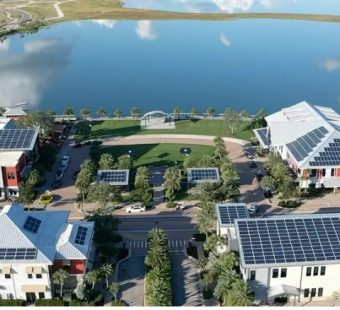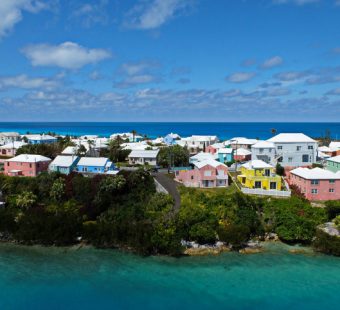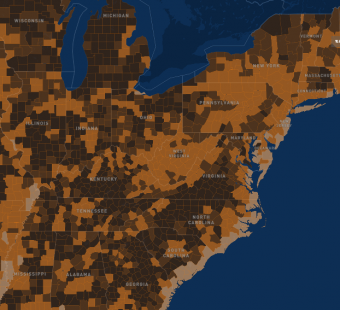
Resilience Town Hall: Looking Back and Ahead
Jeff Dunsavage, Senior Research Analyst 12/2/2020
It’s become commonplace to say COVID-19 has “changed everything” and that we’re now figuring out how to live within “the new normal.” But listening to five experts in yesterday’s Resilience Town Hall, I was repeatedly struck by how much 2020 – with its pandemic and record-breaking hurricanes, wildfires, and civil unrest – has uncovered holes in our “old normal” existence that have long needed fixing.
The town hall – the last this year in a series presented by Triple-I and ResilientH2O Partners in partnership with the Resilience Accelerator – brought these experts together to discuss lessons learned from 2020 and predictions for 2021.
“Disasters can and will happen,” said Carlos Castillo, chief development officer at Tidal Basin Group, who previously led resilience efforts at the Federal Emergency Management Agency (FEMA). “The challenge is for people to recognize that they can happen to them and there are things they can do about them.”
Castillo spoke about FEMA’s Building Resilient Infrastructure and Communities (BRIC) program. In 2020, BRIC made $500 million available on a competitive basis for disaster mitigation programs. While that amount won’t solve the nation’s disaster worries, Castillo said, the idea was to encourage public and private entities to provide matching funds for efforts that would make a real difference.
COVID-19 has made even more federal money available to states and localities and spurred projects that might not be obviously pandemic-related at first glance. Castillo cited one state that is applying for federal funds to fix its roadways to improve access to healthcare facilities. Such improvements would benefit the state and its people not just during a pandemic but in all kinds of emergencies.
This matters because, as Castillo put it, “the pandemic has shown us the importance of our logistics systems. Suddenly, everybody’s competing for masks, gowns, gloves, and respirators. It’s a matter of life or death.”
Public-private partnership
Public-private collaboration was a prominent theme. Rich Sorkin, CEO and cofounder of data and analytics company Jupiter Intelligence, said that only three years ago resilience was “almost the exclusive province of the public sector.”
But by the start of 2020, he said, climate change and its impacts were among the top priorities identified by many commercial entities, “especially in financial services.”
COVID-19 interrupted that immediate focus.
“Executives were distracted dealing with disruptions in their own internal workflows and with changes in the economy,” Sorkin said. Nevertheless, he noted several positive developments, including BRIC and the Coalition for Climate Resilient Investment – an effort by insurers, investors, asset managers, analytics firms, and regulators to understand the return on investment in resilience and communicating it to financial markets.
Sorkin said he expects 2021 to be a “breakthrough year for the private sector from a resilience perspective.”
Richard Seline, co-founder of the Resilience Innovation Hub, reinforced Sorkin’s prediction, stating that “the private sector no longer leaves it to the government to be the driver of solutions.”
Behavioral change
Dr. Michel Léonard, CBE, Triple-I vice president and senior economist, pointed out that the insurance industry has continued to provide coverage throughout 2020 on economically viable terms for consumers and businesses.
“One of the reasons we’ve been able to maintain this ecosystem,” he said, “has been our work with regulators and commissioners – and increasingly with consumers, to be able to drive behavioral change.”
Léonard and the other speakers discussed the complexity of bringing about such change – the role of regulations and incentives, the importance of data-driven decision making, and getting consumers to engage in the sort of cost-benefit analysis usually associated with professional risk managers.
“Whether it’s building codes or pre-emptive risk mitigation, it costs money,” Léonard said, “Whether it’s new construction or public or private, you have to have people ultimately say, ‘It’s worth the money’.”
He added that technology – such as telematics for cars and smart-home systems – is providing data that can support arguments for change.
Eleanor Kitzman, founder of Resolute Underwriters and a past insurance regulator for Texas and South Carolina, described the fragmentation and politicization that can make such change difficult.
“We’ve got a real lack of alignment – not among interests, because the interests are aligned – but of incentives,” she said. “I’m focused on windstorms at a residential level, but also on the impact it has on communities. These storms devastate communities, and some of them never come back. And it’s so avoidable.”



